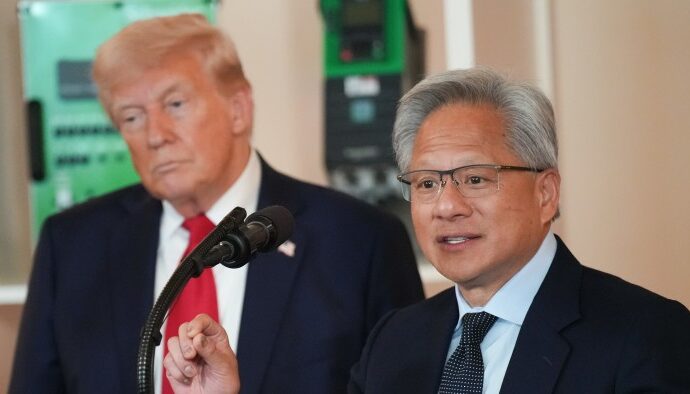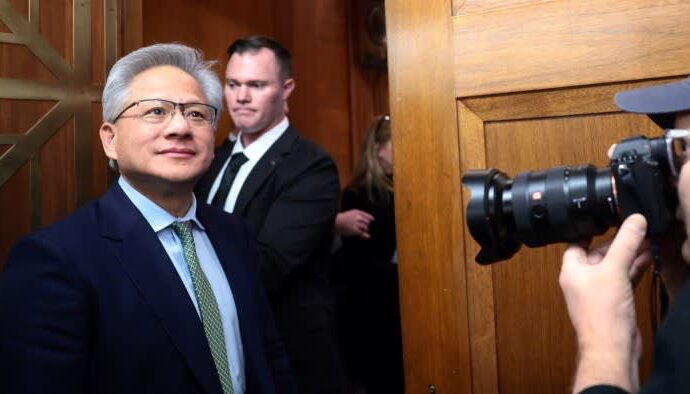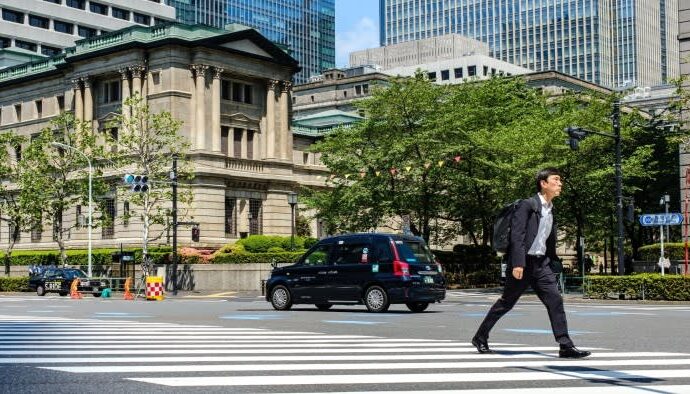Read about this topic in Cantonese.
President Donald Trump and China’s Xi Jinping agreed on fresh trade talks to overcome a tariff stalemate in a highly anticipated phone call on Thursday that China’s state media reported first, stressing that it was the U.S. leader who initiated it.
On his social media feed, Trump described the 90-minute conversation as a “very good phone call.” It came during a tense period in U.S.-China relations after Washington accused Beijing of backtracking on a May 12 agreement to reduce tariffs by not freeing up imports of critical minerals needed for hi-tech industries.
“There should no longer be any questions respecting the complexity of Rare Earth products,” Trump wrote on Truth Social. “Our respective teams will be meeting shortly at a location to be determined.”

But unusually for a high-level diplomatic interaction, it was China’s state-run Xinhua news agency that first reported the news of the call, which analysts suggested was an effort to drive the narrative. The two leaders last spoke by phone three days before Trump took office for his second term this January.
Chinese media reported that the call was made at Trump’s request. It cited Xi as saying: “Now that a consensus has been reached, both sides should abide by it. The U.S. side should look at the progress made in a realistic way and withdraw the negative measures it has taken against China.”
Xi also raised the issue of Taiwan – the self-ruling island that China regards as part of its territory. He called on the United States to prevent what he described as “separatists” from dragging China and the U.S. “into a dangerous situation of conflict and confrontation.”
Comparing the bilateral relationship to a big ship, Xi said that the two sides need to steer carefully in a good direction and for them to “eliminate all kinds of interference and even sabotage,” Xinhua reported.
Trump’s description of the call was upbeat. He said Xi “graciously” invited him and first lady Melania Trump to China, and Trump reciprocated with his own invitation for Xi to visit the U.S.
It was a change in tone from a a day earlier, when Trump had posted on social media: “I like President XI of China, always have, and always will, but he is VERY TOUGH, AND EXTREMELY HARD TO MAKE A DEAL WITH!!!”
It remains to be seen how the two sides can iron out their many differences, not least on trade, where the U.S. racked up a nearly $300 billion dollar deficit with China in 2024.
For its part, China’s government objects to America restricting its sale of advanced chips and its access to student visas for college and graduate students. High U.S. tariffs have had a direct impact on its manufacturers.
Since Trump took office, he has repeatedly threatened punitive measures on trading partners, only to revoke some of them at the last minute. At one point, his administration set 145% tariffs on China, then lowered them last month to 30% for 90 days to allow for talks. China also reduced its taxes on U.S. goods from 125% to 10%.
That volatility and uncertainty has roiled global markets. Resolving the tariff impasse between the world’s two leading economies will be the task in the follow-up talks the two leaders agreed to Thursday.
Lin Fei, a commentator familiar with China’s national conditions, said that Beijing leadership was careful to “pre-set the tone” for the Xi-Trump call on Thursday in an effort to guide international public opinion and avoid appearing passive.
Hong Kong financial analyst Yan Baogang predicted, however, that the negotiations between the two countries will remain deadlocked, and it will be difficult to reach an agreement after the 90-day deadline – which expires July 8 – and U.S. tariffs on China may be increased again.
Edited by Mat Pennington.


